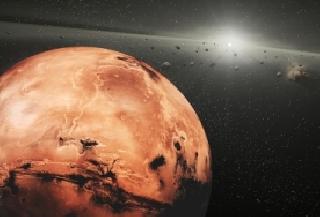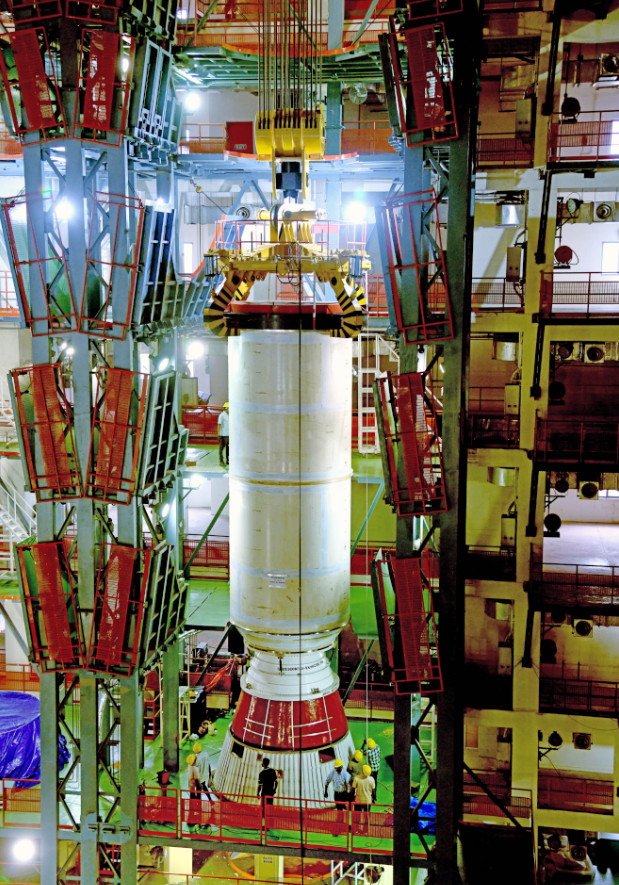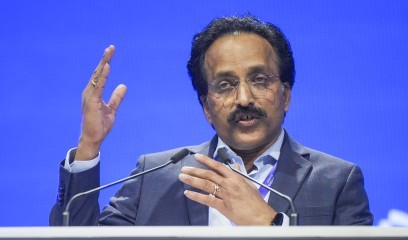
A NASA photo
WASHINGTON (PTI): Presence of molecular hydrogen, carbon dioxide and water on Mars may have created a greenhouse effect that pushed temperatures high enough to allow for liquid water 3.8 billion years ago, scientists have found.
The researchers used a model to show that an atmosphere with sufficient carbon dioxide, water and hydrogen could have made the surface temperatures of Mars warm to above freezing.
Those above-freezing temperatures would allow liquid water to flow across the Martian surface over 3.8 billion years ago and form the ancient valley networks, such as Nanedi Valles, much the way sections of the Grand Canyon snake across the western US today, researchers said.
"This is exciting because explaining how early Mars could have been warm and wet enough to form the ancient valleys had scientists scratching their heads for the past 30 years," said Ramses M Ramirez, a doctoral student who worked with James Kasting, Professor of Geosciences, Penn State University.
"We think we may have a credible solution to this great mystery," said Ramirez.
The researchers note that one alternative theory is that the Martian valleys formed after large meteorites bombarded the planet, generating steam atmospheres that then rained out.
But this mechanism cannot produce the large volumes of water thought necessary to carve the valleys.
"We think that there is no way to form the ancient valleys with any of the alternate cold early Mars models," said Ramirez.
Researchers developed a one-dimensional climate model to demonstrate the possibility that the gas levels from volcanic activity could have created enough hydrogen and carbon dioxide to form a greenhouse and raise temperatures sufficiently to allow for liquid water.
They ran the model using new hydrogen absorption data and used it to recreate the conditions on early Mars, a time when the Sun was about 30 per cent less bright than it is today.
 Previous Article
Previous Article Next Article
Next Article











The Indian Air Force, in its flight trials evaluation report submitted before the Defence Ministry l..
view articleAn insight into the Medium Multi-Role Combat Aircraft competition...
view articleSky enthusiasts can now spot the International Space Station (ISS) commanded by Indian-American astr..
view article